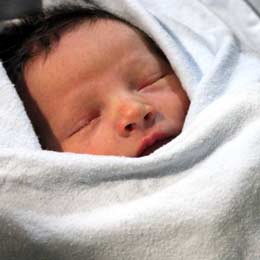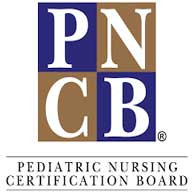Pneumococcal disease is caused by bacteria that can spread from person to person through close contact. It can cause ear infections, and it can also lead to more serious infections .
Why get your child vaccinated?
Pneumococcal meningitis can cause deafness and brain damage, and it kills about 1 child in 10 who get it. Anyone can get pneumococcal disease, but children under 2 years of age and adults 65 years and older, people with certain medical conditions, and cigarette smokers are at the highest risk.
Before there was a vaccine, the United States saw more than 700 cases of meningitis, about 13,000 blood infections, about 5 million ear infections, and about 200 deaths in children under 5 each year.
Pneumococcal conjugate vaccine is recommended for all babies and children younger than 2 years old, all adults 65 years or older, and people 2 through 64 years old with certain medical conditions.
When should your child get the PCV13 vaccine?
PCV13 is routinely given to children at 2, 4, 6, and 12–15 months of age. It is also recommended for children and adults 2 to 64 years of age with certain health conditions, and for all adults 65 years of age and older. Your personal care provider can give you details.
Pneumococcal conjugate vaccine Prevnar® protects against 13 types of pneumococcal bacteria.
Other Routine Immunizations We Provide
- Diphtheria, Tetanus, and Pertussis (DTaP)
Diphtheria, tetanus, and pertussis are serious diseases caused by bacteria. Diphtheria and pertussis are spread from person to person. Tetanus enters the body through cuts or wounds.
- Hepatitis A
Hepatitis A is a serious liver disease caused by the hepatitis A virus (HAV). HAV is spread from person to person through contact with the feces (stool) of people who are infected, which can easily happen if someone does not wash his or her hands properly.
- Hepatitis B
Hepatitis B is a serious disease that affects the liver. It is caused by the hepatitis B virus. Hepatitis B can cause mild illness lasting a few weeks, or it can lead to a serious, lifelong illness.
- Hib (Haemophilus Influenzae Type B)
Haemophilus influenzae type b (Hib) disease is a serious disease caused by bacteria. It usually affects children under 5 years old. It can also affect adults with certain medical conditions.
- HPV
HPV vaccine prevents infection with human papillomavirus (HPV) types that are associated with many cancers.
- Influenza – Inactivated
Influenza or “flu” is a contagious disease that spreads around the United States every year, usually between October and May.
- Measles, Mumps, Rubella (MMR)
Measles, Mumps, Rubella, and Varicella (chickenpox) can be serious diseases. These diseases can spread from person to person through the air. Varicella can also be spread through contact with fluid from chickenpox blisters.
- Measles, Mumps, Rubella & Varicella (MMRV)
Measles, Mumps, Rubella, and Varicella (chickenpox) can be serious diseases. These diseases can spread from person to person through the air. Varicella can also be spread through contact with fluid from chickenpox blisters.
- Meningococcal Conjugate Vaccines (MCV)
Meningococcal disease is a serious illness caused by a type of bacteria called Neisseria meningitidis. It can lead to meningitis (infection of the lining of the brain and spinal cord) and infections of the blood.
- Serogroup B Meningococcal (MenB)
Meningococcal disease is a serious illness caused by a type of bacteria called Neisseria meningitidis. It can lead to meningitis (infection of the lining of the brain and spinal cord) and infections of the blood.
- Pneumococcal Conjugate (PCV13)
Pneumococcal disease is caused by bacteria that can spread from person to person through close contact. It can cause ear infections, and it can also lead to more serious infections .
- Polio
Polio is a disease caused by a virus. It is spread mainly by person-to-person contact. It can also be spread by consuming food or drinks that are contaminated with the feces of an infected person.
- Rotavirus
Rotavirus is a virus that causes diarrhea, mostly in babies and young children. The diarrhea can be severe, and lead to dehydration.
- Tdap (Tetanus, Diphtheria, Pertussis)
Tetanus, diphtheria, and pertussis are very serious diseases. Tdap vaccine given to pregnant women can protect newborn babies against pertussis.
- Varicella (Chickenpox)
Chickenpox (also called varicella) is a common childhood disease. It is usually mild, but it can be serious, especially in young infants and adults.
Immunization Schedules from the CDC
Easy-to-read formats to print, tools to download, and ways to prepare for your office visit.

















